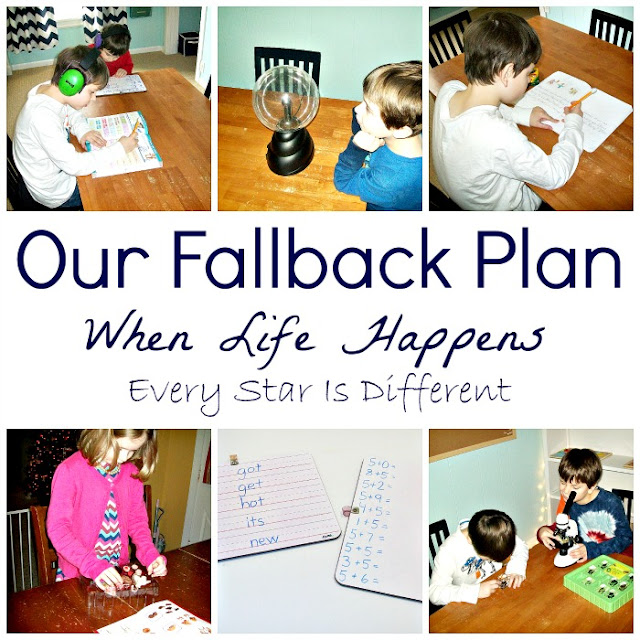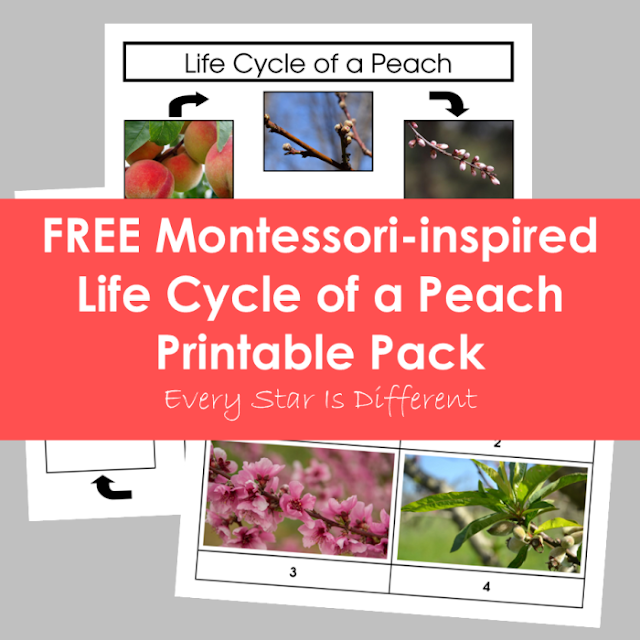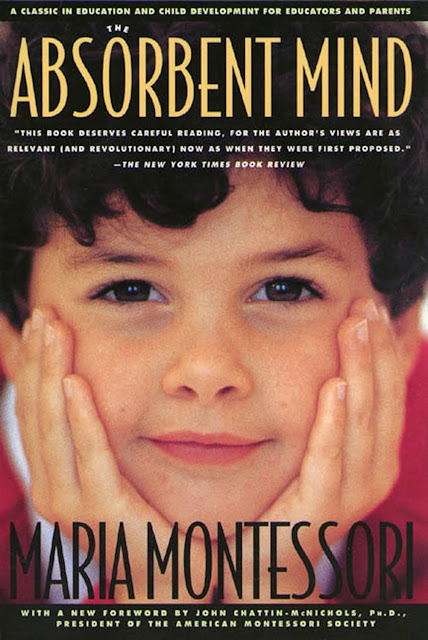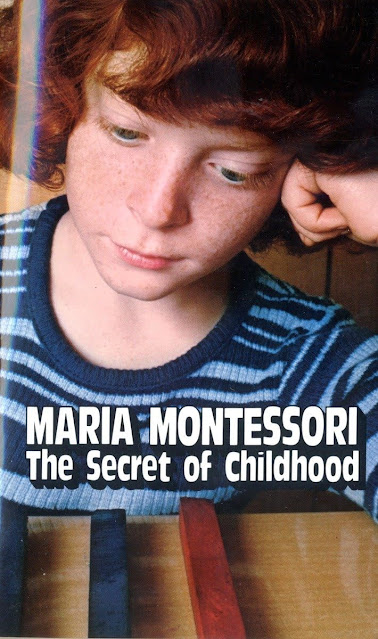I've come to realize there is so much more to Montessori than shelves and materials.
I'll be honest.
It's been a wee bit of a challenge for me.
I like a clean and orderly home with everything in its place.
Our situation has me pondering a lot about Montessori and what it means.
There Is So Much More to Montessori than Shelves and Materials
In our current home, I don't have shelves.
I don't have a place to set out learning activities.
Heck, I don't even have a table.
Until we close on our house in NY there is no way to purchase these items.
I started to become discouraged because it appeared that using the Montessori Method wasn't possible right now.
I started to become discouraged because it appeared that using the Montessori Method wasn't possible right now.
If I didn't have shelves, a table, or printed activities, I just couldn't pull it off.
Thankfully my feelings of despair only lasted a few minutes before I realized that these feelings were the most foolish ones I'd had in a long time.
Thankfully my feelings of despair only lasted a few minutes before I realized that these feelings were the most foolish ones I'd had in a long time.
Montessori is not just about kid sized furniture and shelving units.
It's not just about specific materials or even printed activities.
Yes these things are good, but if that's all we do, we're missing the point.
Montessori is a state of mind.
It's a philosophy.
It's a way of life.
Just because I don't have beautiful shelves arranged with activities, or a table for my children to work at, doesn't mean that all is lost.
Montessori is a state of mind.
It's a philosophy.
It's a way of life.
Just because I don't have beautiful shelves arranged with activities, or a table for my children to work at, doesn't mean that all is lost.
There are so many other aspects of Montessori that are 100% doable in our present circumstances.
And so, over the past week, I've made it my mission to focus on different aspects of Montessori that I CAN do as much as possible.
And so, over the past week, I've made it my mission to focus on different aspects of Montessori that I CAN do as much as possible.
Without the preparation of activities and classroom work that is usually part of my daily routine, I find it so much easier to focus on other parts of Dr. Maria Montessori's method, some of which are far more important.
Perhaps being without furniture and shelves is a hidden blessing in disguise?
Here's what I've been focusing on.
Have you ever stepped back and just observed your child?
Since we've moved and I'm not as focused on "getting things done," I've had the time to sit and observe each of my children.
Perhaps being without furniture and shelves is a hidden blessing in disguise?
Here's what I've been focusing on.
Observation
- How does she play?
- What is she drawn to?
- What interests does she have?
- How does she problem solve?
- What does she want to learn?
- How does her body move?
- Does she like to stay still?
- Is she a helper?
- Does she like things orderly and clean?
- How does she respond to various types of sensory stimuli?
- What does she talk about?
Since we've moved and I'm not as focused on "getting things done," I've had the time to sit and observe each of my children.
I've taken a step back and listened to their questions.
This is not to say that I didn't observe my children before, but this time has been different.
There are no distractions.
Observation is one of the most important aspects of the Montessori Method.
Observation is one of the most important aspects of the Montessori Method.
It is the way we learn to follow the child.
Without observation, we can not be an effective Montessori teacher or parent.
As we observe and follow, it is amazing how much we're able to help our children learn.
As we observe and follow, it is amazing how much we're able to help our children learn.
Observation doesn't require shelves and materials.
It can occur every day in our natural environment if we allow time for it.
Observation this past week has taught me what my children can and can't do on their own in our new environment.
Observation this past week has taught me what my children can and can't do on their own in our new environment.
It has taught me when I have to supervise and when I can leave my children to fend for themselves.
In some cases, I observed that our environment needed the smallest tweak in order to allow for complete independence.
As I observed my children over the past week or so, I've learned that they really do enjoy work opposed to free play.
Work
They desire tasks with a purpose.
If the task involves physical activity, that's even better.
Due to these observations I have provided more opportunities for my children to do work.
Due to these observations I have provided more opportunities for my children to do work.
They have torn down trees, collected firewood, picked fruit, prepared meals and so much more!
It's always best to have child size tools to accomplish work tasks, but if you don't, not all is lost.
It's always best to have child size tools to accomplish work tasks, but if you don't, not all is lost.
There are so many projects at home or outside that don't require special materials.
Don't hesitate to involve your children in day to day "work" tasks.
These tasks not only teach them necessary life skills but lead to a path of independence and self satisfaction that can otherwise not be attained.
So often it is much easier to do something for our children than to wait patiently for them to do it themselves.
Independence
But when given independence to learn and accomplish tasks on their own, children flourish.
Independence does not require the purchase of shelves or Montessori materials.
It can be as simple as rearranging items so that they are in reach.
It can mean teaching rules and boundaries in order to give more freedom in an environment.
It can also mean sitting back to observe and follow, rather than giving orders.
Through independence children can develop confidence in their abilities to function in the environment around them. They learn to have respect for themselves and their surroundings.
At our house in New York the children had to be supervised when outside due to the circumstances of our neighborhood.
Independence does not require the purchase of shelves or Montessori materials.
It can be as simple as rearranging items so that they are in reach.
It can mean teaching rules and boundaries in order to give more freedom in an environment.
It can also mean sitting back to observe and follow, rather than giving orders.
Through independence children can develop confidence in their abilities to function in the environment around them. They learn to have respect for themselves and their surroundings.
At our house in New York the children had to be supervised when outside due to the circumstances of our neighborhood.
We had a very small backyard.
Playing in the front yard wasn't an option.
At our new home in Virginia there is wide open space for the children to roam free in the front, back and sides of the house where I don't have to keep as close of an eye on them.
I won't lie, we have gone through more band-aids and bandages in two weeks than we did during an entire year at our home in NY.
I won't lie, we have gone through more band-aids and bandages in two weeks than we did during an entire year at our home in NY.
I have never seen so many bumps and bruises on my children.
There have been other fun adventures as well.
But the more independence I'm able to give them, the more they are thriving.
They're also realizing it's not a big deal to have a scrape or a bruise, which is so nice!
Too often we think that Montessori means activities placed on trays, and beautifully arranged on shelves.
Natural Learning
But this concept is only a small piece of what Dr. Maria Montessori taught.
Learning occurs everywhere, not just in a classroom or a Montessori space created in the home.
The earth is an absolutely amazing place to live, filled with such beauty and awe.
The earth is an absolutely amazing place to live, filled with such beauty and awe.
Let us remember to enjoy all that it has to offer.
Go outside.
If that's not possible, focus on day to day tasks in the home, or even simple conversations related to questions our children have.
Natural learning situations require no preparation.
Natural learning situations require no preparation.
They just happen.
This week while outside, we've discussed the sounds cicadas make.
This week while outside, we've discussed the sounds cicadas make.
We've watched a spider and beetle go head to head.
Sunshine has learned the ins and outs of picking peaches.
Princess experienced first hand how wineberries taste if you pick them too soon, and then learned exactly how to tell when they're perfectly ripe and ready to eat.
Indoors the girls decided to line up the shoes in the front entryway from biggest to smallest.
Indoors the girls decided to line up the shoes in the front entryway from biggest to smallest.
Sunshine asked if she could help make her lunch.
Both girls learned how to mop hardwood floors.
The boys studied paper wasps from their bedroom window.
There are always natural learning experiences to be had.
It's so easy to want to dive into the Montessori Method head first and race to implement it perfectly.
Teacher/Parent Transformation
Unfortunately this is a very unrealistic goal.
In order for Montessori to truly become a part of us, a transformation has to occur.
The transformation that I speak of is not one children go through.
It's a transformation of the parent and/or teacher.
This does not happen as trays with activities are arranged on a shelf.
This does not happen as trays with activities are arranged on a shelf.
It doesn't occur when setting up a Montessori environment.
Transformation occurs as we come to understand Maria Montessori's philosophy and truly embrace her vision.
How can we do this?
How can we do this?
It is impractical for everyone to become Montessori certified.
Instead we can begin with reading books written by Dr. Maria Montessori.
If you're looking for a place to start, select one of the books below.
They're absolutely fabulous!
I try to read from one of Maria Montessori's books on a daily basis.
I try to read from one of Maria Montessori's books on a daily basis.
It helps keep me in the right mind frame.
Not a day goes by that I don't learn something new.
Dr. Maria Montessori's work is truly inspiring!
If you don't have child sized furniture, shelving, or Montessori Materials, please don't despair.
If you don't have child sized furniture, shelving, or Montessori Materials, please don't despair.
There is more to Montessori!
Focus on observing your children.
Identify work that children can help with without the purchase of child-sized tools.
Encourage independence.
Allow time and focus for natural learning experiences.
Give yourself time to transform as you dive into Maria Montessori's life work.
There is so much more to Montessori than shelves and materials!
If you enjoyed this post you may also enjoy the ones below.
There is so much more to Montessori than shelves and materials!
If you enjoyed this post you may also enjoy the ones below.



















I really enjoyed reading this. You have brought up so many important points. Montessori's writings really resonate with me but I live in a tiny house and if truth be told my son does not want to do, and never has wanted to do, work typically displayed on Montessori style trays and shelves. However, so much learning follows if I follow the guidance you have written about in your post. Thank you. I would like to see more on this.
ReplyDeleteHey! I just thought I'd check in - glad to see everyone seems to be adjusting well. You are missed at CFL - say hi to everyone for me, and the boys, especially. You know I miss our talks! :)
ReplyDeleteThank you for this post! A very good reminder and inspiring to read x
ReplyDeleteJacinda (New Zealand)
This is so true espically the part about natural learning. This is how my own children were home schooled we lived life and they learned so much outside of "curriculum" But now that I have grand children in my home and have learned about Montessori methods I wish I had made trays and child sized tools and used Montessori Method with my own as I have tried to use these methods with my grandsons. But this post reminded me that we had lots of hands on real world learning and the trays and child sized things have to transition into real world skills for living life as adults. My kids are very wonderful adults, Montessori will help me give the grandsons earlier opportunities to practice independence and a more orderly and hands on method of learning but Montessori is still an aid to life. Thanks for this post!
ReplyDelete